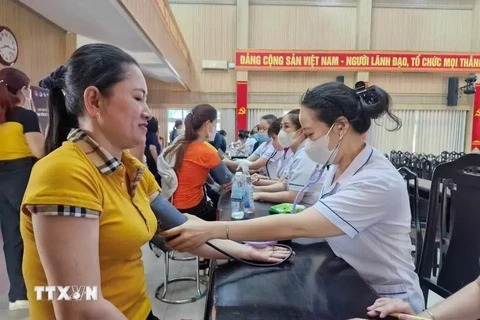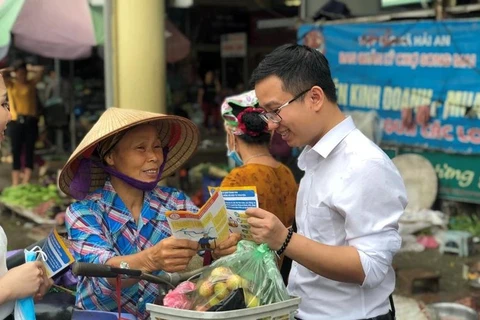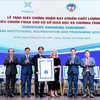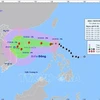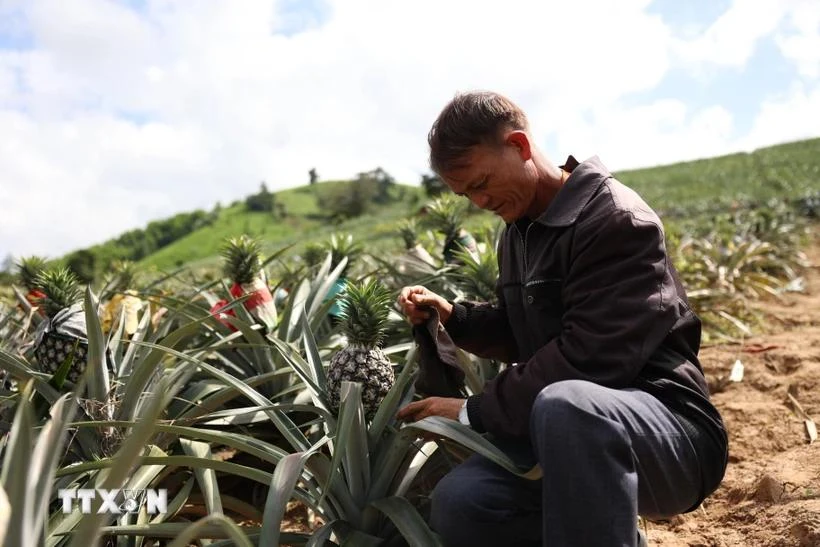
Hanoi (VNA) – Research shows that migrants are among the most vulnerable groups during public health emergencies, facing issues such as restricted mobility, job loss, and healthcare disruptions, heard a workshop in Hanoi on September 24.
The workshop on Internal Migration and Health of Migrants was co-organised by the Department of Population, under the Ministry of Health, and the International Organisation for Migration (IOM) Vietnam.

According to Le Thanh Dung, Director General of the General Department of Population and a member of the National Steering Committee on Population and Development, migrants’ health is a cross-cutting issue requiring a comprehensive, inter-sectoral approach with consultation from relevant stakeholders.
He emphasised that due attention has been paid by the Party and the Government to migration and migrants. Resolution No. 21-NQ/TW, dated October 25, 2017, of the 12th-tenure Party Central Committee of the Communist Party of Vietnam on population work in the new context, and the Vietnam Population Strategy to 2030 stressed investment in vulnerable populations to contribute to the successful implementation of the United Nations 20230 Agenda for Sustainable Development, under the principle of "leaving no one behind."

Vietnam’s population currently stands at 100.3 million, with urban residents making up 38%. Vietnam is in the "golden population" period, with 67.7 million people of working age, accounting for 67% of the total population.
Data from the Population and Family Planning Survey conducted by the General Statistics Office on April 1, 2022, showed that the Mekong Delta and the northern midlands and mountainous region has the largest number of people migrating to other localities. The southeastern region and Red River Delta received the most number of migrants.
Women account for 53.2% of the total migrants in the country and seeking employment is among the top reasons for migrating.
Migration brings opportunities for education, employment, income, technology transfer, cultural exchange, and promotes cooperation between communities of origin and destination, but it also creates difficulties for both. Migrants belong to vulnerable populations and face challenges in accessing social services.
A recent report on the health status of migrants in Vietnam by the IOM, the World Health Organisation (WHO), and the Ministry of Health highlighted barriers and difficulties in accessing healthcare services, such as a lack of knowledge about health insurance benefits, insufficient public health communication programmes, and limited involvement from various stakeholders.

According to Vu Dinh Huy, a representative of the World Health Organisation in Vietnam, internal migrants currently face many health problems.
For the informal migrant group, it is often more difficult due to living conditions, working conditions, and working hours. This also includes work that is not controlled, tends to have an unhealthy lifestyle or has a high risk of contracting infectious and non-communicable diseases, including mental illness.
To address the health challenges faced by domestic migrants, Huy suggested solutions such as providing health knowledge through guiding books and strengthening health education communication. There is also a need to reinforce social care networks by improving access to housing, education, sanitation, and health insurance, and by strengthening primary healthcare systems. Furthermore, policies and regulations on occupational safety, working conditions, and company-based primary care services should be implemented and monitored, along with regular health check-ups, he added.
At the workshop, delegates focused on discussing current demographic issues of internal migration and the relationship between migration and sustainable development, employment, social security, and gender. It also looked at pathways to improving migrant health, enhancing cooperation, sharing initiatives, good practices and making effective recommendations./.
